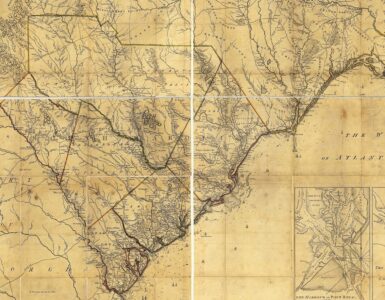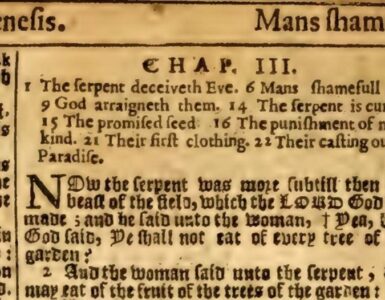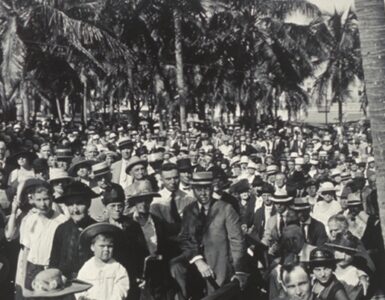In 2023 the PCA General Assembly adopted an overture regarding the digitization of church records. To view the overture, click HERE. The Administrative Committee will bring its recommendations to the assembly this year.
OVERTURE 20 from Potomac Presbytery (to AC) “Request Administrative Committee to Research Use of Electronic Records for Denominational Purposes”…
[The gist of the whereas list is, digital records are increasingly used and their convenience speeds the transaction of judicatory business.]
Therefore be it resolved that Potomac Presbytery hereby overtures the 50th General Assembly of the Presbyterian Church in America (PCA) for the Administrative Committee and the Office of the Stated Clerk to initiate an effort to identify and make use of records management expertise in the denomination (including the PCA Historical Center) or elsewhere to understand the matter and provide practical and defendable solutions; within two years to provide clerks, churches, and presbyteries with its initial findings and recommendations; and to update the “Clerk of Session Handbook” to address electronic records, to include electronic letters of dismissal to other churches.
 The purpose of this post is to express my thoughts about antiquarian documents in general and church records in light of the Administrative Committee recommendations that will be composed and presented this year. As far as I know, the Committee has not yet determined its recommendations and I am not writing in response to what they have decided. I am a member of a PCA congregation and a member of the PCA Historical Center Advisory Sub-Committee. Historical documents are important for my personal work and they are important for the denomination. If it was not for the constantly increasing collections of web-accessible publications and manuscripts held by organizations including the material digitized by the PCA Historical Center under Wayne Sparkman’s direction, sources for my writing would be greatly limited.
The purpose of this post is to express my thoughts about antiquarian documents in general and church records in light of the Administrative Committee recommendations that will be composed and presented this year. As far as I know, the Committee has not yet determined its recommendations and I am not writing in response to what they have decided. I am a member of a PCA congregation and a member of the PCA Historical Center Advisory Sub-Committee. Historical documents are important for my personal work and they are important for the denomination. If it was not for the constantly increasing collections of web-accessible publications and manuscripts held by organizations including the material digitized by the PCA Historical Center under Wayne Sparkman’s direction, sources for my writing would be greatly limited.
Until recent years historians could not access published materials without either visiting a holding institution to access sources or by obtaining them through interlibrary loans. The potential for well researched scholarship seems limitless as holding institutions realize online access can be a good thing. The use of microforms is greatly improved by digitization of those images online so the microform text can then be zoomed on one’s monitor. The number of historical newspapers digitized for online research increases daily, however, more Presbyterian and other religious serials need to be added to the list. Hopefully, it is clear that I think digitization is a good thing. I am not a Luddite; I am not against progress so long as its advances are carefully thought through and potential hazards discerned and avoided. These opinions are my own and I claim no sanction other than as a PCA member and a historian.
A concern I have is illustrated by our primary standard as confessional Presbyterians, the Bible. Bible readers are indebted to archaeologists recovering ancient scripture texts that have been meticulously analyzed and made available for textual critics so they can provide readers with the most faithful text of the Bible. It is excruciatingly tedious work as bits of the Bible on scarabs, ostraca, clay tablets, monument inscriptions, papyrus, vessel inscriptions, vellum, and other media are deciphered in anticipation of adding evidence to support the authenticity and accuracy of scripture passages. The point is, ancient hard copies are important for biblical studies. I doubt anyone would say that because the scrolls from Qumran are published in books and/or digital form the scrolls themselves are no longer needed. At this point some will say apples are being compared with oranges, after all, the minutes and clerical documents produced by judicatories of the denomination are not equivalent to the Word of God. Obviously not, but the way historical textual sources of the Bible are held dear should cause pause to consider whether the original documents composed by judicatories should also be held in high regard. Are not the actions and history of congregations important for successive generations as they comprehend the line of saints that have gone before?
The devastation and tragedy of the fires in California have saddened the nation. Is there a lesson for the church? Watching the news has been difficult because individuals who lost their homes sob and say, “It is all gone. All the family pictures are gone. All the birth certificates and our marriage license are gone.” Hopefully, some of those individuals digitized their precious documents. The digital image is different from the marriage license signed by the witnesses and minister. The original has texture, patina, creases from being folded in the nervous groom’s pocket, maybe even spots indicative of the bride’s tears of joy—does a digital copy capture fully these aspects of the original? No, the original is best, but the digital is better than nothing.
Hard copies and digital copies are good things. Even though digital copies are considered backups of hard copies, the two forms really complement each other. If either one is lost and the other is available, then the information is backed up.
Now some thoughts about sessional records. There is something permanent and enduring about a session book with its pages stacked up and inserted into a heavy locking binder, then secured with a click as the catch is closed. A sessional record book says, these are important documents because they are the records of the session of a church of the Lord Jesus Christ, and they were compiled to provide historical background for actions by the shepherds of God’s flock. The books record baptisms, membership additions and dismissals, deaths, and other information. An orderly set of sessional records includes signatures by the clerk and moderator attesting to the authenticity of their account of each meeting. Signatures not only confirm the authenticity and accuracy of minutes but also provide historical artifacts of the elders whose unique autographs testify to their existence and concern for decency and order. The clear and fluid John Hancock of a younger moderator might be next to the erratic and barely legible signature of a clerk whose arthritic hands testify to his age as an elder who has ruled well. One concern raised by Overture 20 is the use of digital certificates of transfer. This may be the best way to handle the relocation of a member or officer from one congregation or presbytery to the next, but digitization of a hard copy or printing out a hardcopy from the digital form provides backup.
The faithful Church in the United States is increasingly challenged by society because of its acceptance of views condemned by the Bible. What about socio-political events decrying and criminalizing what is called hate speech. The trouble with a term like hate speech is the definition, no matter how precisely composed, inevitably has subjective elements made objective by the eyes of the beholder. Is it possible that one day positions adopted by the PCA become designated hate speech and the members are persecuted? Could that persecution include digital terrorism? What if a hostile entity hacked the digital records of the PCA and everything was lost? Without backups isolated from the internet, information could be lost. Even though hard copies in an archive can be destroyed they can only be destroyed by aggressors when they are physically at the archive, but online records can be accessed without geographic proximity. Hard copies back up electronic copies and vice versa.
I am concerned that the recommendation coming from the Administrative Committee might be thought by some members of the assembly to be a clerical or housekeeping matter, something the Stated Clerk and Administrative Committee can handle on their own. But I hope I have shown the importance of both forms being maintained. Sessions, please, whether your minutes are processed on a computer, pecked out on a typewriter, or even written by hand, make hard copies and bind them properly with signatures wherever required. There are many churches in the PCA that were founded early in the nineteenth century, so remember to include your old minutes in your copying by camera or scanner. Once records are saved to a long-term storage device, be sure the device is stored somewhere other than the same building as the session book. Are there any churches out there that have their artifacts and documents stored in the three worst places for archival collections (if they have no climate control)—the attic (hot and dry), the basement (dank and damp), and the garage (you name the hazard)? I have read many histories of local churches and it is common to see an annotation that the minutes from one date to another are unavailable because they were destroyed by fire. In one case a church stored the records in a room below the bell in the steeple and a tornado combined with a torrential rain destroyed the records. In the past, backups were made by manually copying the original until the polygraph (device for writing two or more copies at once) came along, after which carbon paper was invented, and then the typewriter improved the quality and eased backing up, but now backups are comparatively simple to make.
Presbyterians have done well with their records over the years. The conviction of the Reformed that things should be done “decently and in order” (1 Cor 14:40) has yielded the publication of a tremendous amount of historical resources. Minutes of general assemblies and synods are available online and even some presbytery records are available for public access on the web. Before digitization and the internet one had to go to a library and leaf through books of assembly minutes sometimes with pages numbering over a thousand. The minutes of one Presbyterian denomination were printed for a time on highly acidic paper leading to self destruction as the years passed. The assembly had decided to follow the cheap paper route because of the cost of quality paper. The result of their penny saved is those minutes are crumbling away in their published forms. When I used the minutes for my dissertation, they were stored in manilla envelopes with flaps and clasps. I opened an envelope and pulled the book out with piles of paper fragments falling out. I left my carrel with a sprinkling of paper fragments on the surface and around it on the floor. Thus, these decaying hard copy minutes are backed up by their current availability online.
When King Josiah ruled Judah, he called for renovation of the temple of God because it was abandoned due to the people’s apostacy manifest in rampant idolatry. Hilkiah, the high priest, found in the temple the book of the Law of Moses and when his secretary, Shaphan, read it to Josiah he tore his clothes in anguish. The Lord providentially preserved his Law in the Jews’ archive, the temple. Josiah’s reign ushered in a time of repentance and piety (2 Kings 22, 23). Though the records of the PCA are not the Bible, hopefully, if all important digital records of the PCA were lost in years to come there would still be originals in the archives.
I hope these thoughts have been helpful.
Barry Waugh
Notes–The header is “Photograph Through Center Hallway of the Stacks,” dated 1875, and the portrait is “Desiderius Erasmus,” dated 1863; both are from the New York Public Library Digital Collection.





